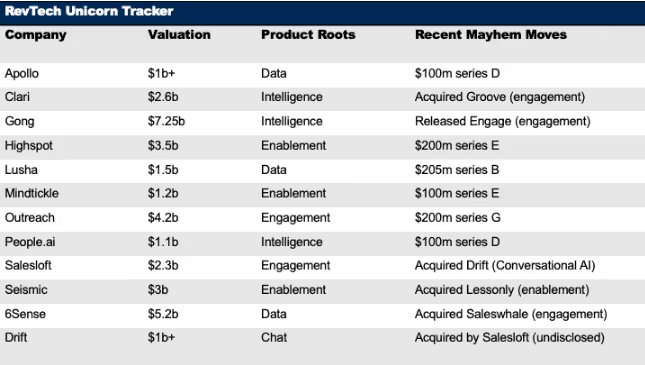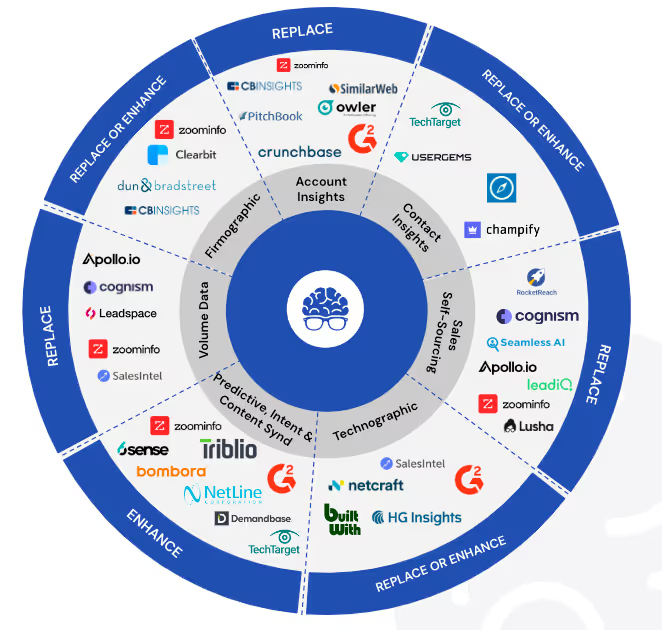The landscape of sales, marketing, and revenue technology is undergoing a transformative consolidation, marking a significant shift from specialized, unit-specific solutions to comprehensive, integrated platforms. This transition reflects a deeper understanding of the strategic value of unified data insights and the growing complexity of business processes across the entire revenue-generating apparatus of an organization.
From Fragmented Solutions to Unified Platforms
Historically, businesses employed a variety of tools tailored to the unique needs of individual business units. Revenue forecasting tools, for instance, were designed predominantly for sales leaders and focused on projecting sales figures based on historical data and trend analysis. Simultaneously, marketing teams used prospecting tools to identify and target potential customers, while sales managers utilized call coaching software to enhance performance through feedback on call quality and technique.
Each tool provided value within its domain but often operated in silos, resulting in fragmented customer journey views and missed opportunities for cross-functional collaboration. The siloed nature of these tools often led to inefficient workflows and data redundancies, hindering the ability to deliver a cohesive customer experience.
The Drive for Comprehensive Solutions
The push toward comprehensive, integrated solutions has been influenced by several key factors:
- Increased Complexity of the Buyer’s Journey: Modern buyers interact with brands through multiple touchpoints across various channels, necessitating a unified view to provide a consistent and engaging customer experience.
- Rise of Data as a Strategic Asset: As data's role in strategic decision-making has expanded, so has the need for robust data integration and analytics across platforms, enabling more precise targeting, personalization, and optimization efforts.
- Demand for Operational Efficiency: Companies are seeking to reduce the complexity and cost of managing multiple disparate systems by adopting integrated platforms that streamline processes and reduce operational overhead.
- Evolving Role of Revenue Leaders: The scope of revenue leaders’ responsibilities has broadened to include not just oversight of sales but the integration of sales, marketing, and customer success. This evolution requires tools that support strategic planning and execution across all facets of revenue generation.
Strategic Acquisitions Driving Consolidation
Recent strategic acquisitions illustrate the industry's move towards larger, more integrated platforms:
- HubSpot and Clearbit: HubSpot’s acquisition of Clearbit enhances its capabilities by integrating extensive B2B data intelligence, enabling more targeted marketing campaigns and sales strategies.
- Clari and Groove: Clari’s acquisition of Groove aims to create a comprehensive end-to-end revenue platform, merging sales engagement with revenue operations to enhance efficiency and precision in revenue management.
- Salesloft and Drift: This acquisition merges Salesloft’s sales engagement expertise with Drift’s conversational marketing innovations, highlighting a trend towards integrating AI-driven communication and engagement tools into traditional sales processes.
Implications for the Industry
The shift towards unified platforms offers numerous benefits, including enhanced team alignment, improved efficiency, and deeper customer insights. However, this shift also poses challenges such as the need for new skills, potential disruptions during technology transitions, and the requirement for ongoing adaptability to leverage evolving technologies effectively.
The Future of Tech Consolidation
While the current wave of consolidation offers a glimpse into the future of sales, marketing, and revenue technology, it is just the beginning. The ongoing integration of AI and machine learning technologies is likely to further drive the development of platforms that can provide even more comprehensive insights and automated, personalized customer interactions.
In conclusion, as the landscape of sales, marketing, and revenue technology continues to evolve, businesses are likely to see an increased emphasis on platforms that can offer a unified solution across all aspects of the customer journey. This consolidation not only streamlines operations but also provides a competitive edge in a data-driven market. The future promises more integration, more innovation, and an ongoing transformation of the tech landscape that businesses must navigate wisely to stay ahead.





